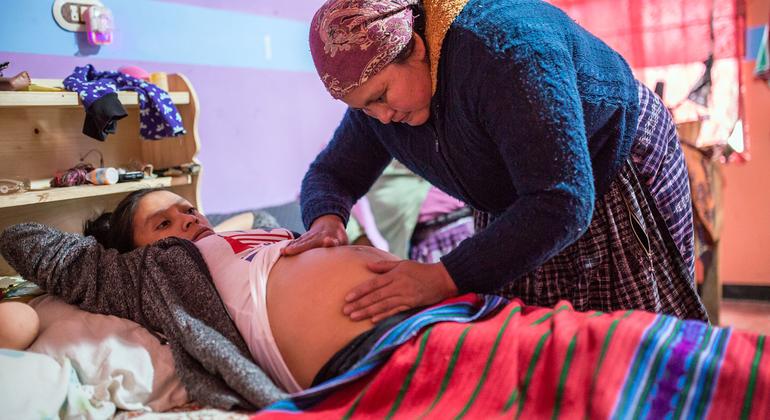According to a new report from the World Health Organization (WHO), maternal deaths have either increased or stagnated nearly everywhere, from 223 maternal deaths per 100,000 live births in 2020, down from 227 in 2015 and 339 in 2000.
Unless progress is made on global targets for reducing maternal deaths – most of which are preventable – the lives of over one million more women by 2030 could be at risk, the WHO warned.
“Pregnancy … is tragically still a shockingly dangerous experience for millions around the world who lack access to high quality, respectful health care,” said Tedros Adhanom Ghebreyesus, the WHO Director-General.
Tedros highlighted stark disparities in healthcare access in many regions and the urgent need “to ensure every woman and girl has access to critical health services before, during and after childbirth, and that they can fully exercise their reproductive rights”.
Furthermore, as the world slowly emerges from the COVID-19 pandemic which has highlighted that coronavirus infections can increase risks during pregnancy, the report’s authors stressed that more research will be needed to show the true impact of the global health emergency on maternal deaths.
Baby steps
The WHO-produced report, Trends In Maternal Mortality, tracked maternal deaths nationally, regionally and globally from 2000 to 2020.
It calculated 287,000 maternal deaths worldwide in 2020, which represented “only a slight decrease” from 309,000, in 2016.
This was the case despite countries’ pledges in 2015 to implement the Sustainable Development Goals (SDGs), whose target is less than 70 maternal deaths per 100,000 live births by 2030.
Although the report indicated “some significant progress” in reducing maternal deaths between 2000 and 2015, gains largely stalled, or in some cases even reversed, after this point, its authors said.
Responding to the report’s findings, the UN Population Fund’s (UNFPA) Executive Director, Dr. Natalia Kanem expressed alarm that “so many women continue to die needlessly in pregnancy and childbirth. Over 280,000 fatalities in a single year is unconscionable.”
Dr. Kanem added: “We can and must do better by urgently investing in family planning and filling the global shortage of 900,000 midwives so that every woman can get the lifesaving care she needs. We have the tools, knowledge and resources to end preventable maternal deaths; what we need now is the political will.”

Maternal care services are close to a standstill in Haiti.
Conflict and poverty: a deadly cocktail
Among the report’s key findings: that maternal deaths remain largely concentrated in the poorest parts of the world and in countries affected by conflict.
In 2020, about 70 per cent of all maternal deaths were in sub-Saharan Africa. And in nine countries facing severe humanitarian crises, maternal mortality rates were more than double the world average (551 maternal deaths per 100,000 live births, compared to 223 globally).
The leading causes of maternal death are severe bleeding, high blood pressure, pregnancy-related infections, complications from unsafe abortion and underlying conditions that can be aggravated by pregnancy – such as HIV/AIDS and malaria.
“These are all largely preventable and treatable with access to high-quality and respectful healthcare,” the report’s authors stressed.
Additional data showed that roughly one-third of women do not receive four of the recommended eight antenatal checks or receive essential postnatal care, while some 270 million women lack access to modern family planning methods.
The report’s authors also stressed that inequality related to income, education, race or ethnicity “further increase risks for marginalized pregnant women, who have the least access to essential maternity care but are most likely to experience underlying health problems in pregnancy”.
The report was produced by WHO on behalf of the UN Maternal Mortality Estimation Inter-Agency Group comprising WHO, UNICEF, UNFPA, the World Bank Group and the Population Division of the United Nations Department of Economic and Social Affairs (DESA).



